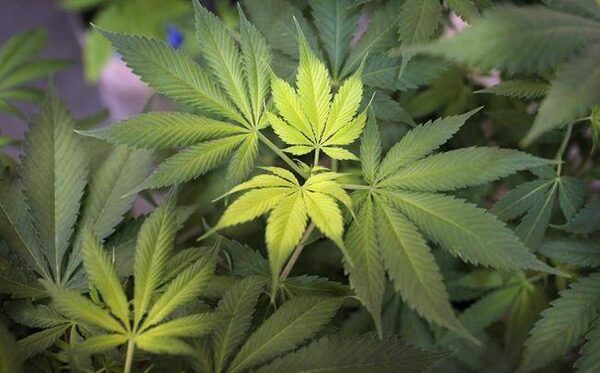
In an open letter to politicians, leading researchers said they are worried that not enough is being done to ensure quality data are being collected on how Canadians are using medical and illegal cannabis right now – before legalization changes people’s habits.The Canadian Press
With cannabis legalization on the horizon next year, the federal government must make it easier to study the potential medical benefits of the drug and evaluate how ending prohibition might affect society, according to an open letter to politicians from dozens of the country's leading academics and public-health researchers who study the drug.
"Under widespread global prohibition, cannabis research has been limited by the criminalization and stigmatization of cannabis use and users, leading to substantial gaps in knowledge around the harms and benefits of both medical and non-medical cannabis," reads a letter sent Monday to federal lawmakers on the letterhead of the BC Centre on Substance Use, an organization funded by the provincial government to study drugs.
"For example, although cannabis' role as a pain reliever is increasingly well known, urgent questions remain about what effect increasing access to medical cannabis might play in the response to the ongoing opioid overdose crisis. Now is the time to ensure biomedical, epidemiological, and social sciences cannabis research is prioritized; supported with adequate funding; and facilitated through reduced administrative barriers."
Investigation: What's in your weed?
Investigation: What's not in your weed?
The letter was signed by noted researchers such as Julio Montaner, a renowned HIV/AIDS researcher, and Mark Ware, a McGill pain researcher and vice-chair of Canada's recent federal panel on legalization, as well as organizations such as the BC Cancer Agency and the Canadian AIDS Society.
Uruguay is the only other country to have legalized the recreational sale and use of marijuana, but sales have been slow to roll out and the tiny South American country has a population about a 10th the size of Canada.
That means Canada has an opportunity to provide the world's first national case study on the dangers – and potential benefits – of cannabis.
But the letter states the researchers are worried that not enough is being done to ensure quality data are being collected on how Canadians are using medical and illegal cannabis right now – before legalization changes people's habits.
Bureaucrats in Washington and Colorado have lamented that their states were not properly collecting clear statistics and information on the drug before they rolled out the legalization of recreational pot.
Health Canada spokesperson Maryse Durette said Monday that the government has already taken action to start gathering this important baseline data, noting a new Canadian Cannabis Survey "will monitor patterns of and perceptions around cannabis use amongst Canadians, including youth, on an annual basis."
She also noted the data gap will be addressed by last month's call for research proposals by the government-funded Canadian Institutes of Health Research.
That body is set to award 10 grants of up to $100,000 for year-long projects by next January, with the money becoming available March 1, 2018.
However, it is likely already too late to collect meaningful data before next summer, when the laws are expected to change, according to M.J. Milloy, an infectious-disease epidemiologist who is studying the therapeutic effects of marijuana at the BC Centre on Substance Use. That's because grant recipients must go through ethical reviews for their research – which can take up to two months – and then must begin the often onerous process of recruiting people "in the wild" to talk about their cannabis use, he said.
"It's not a quick process and so it will be very challenging," Dr. Milloy said. "We can't unring the bell as soon as they start selling legal cannabis – that's it."
One example, he said, of where these data are so important is regarding how much to tax legal cannabis.
"If we set the price too low we might in fact encourage problematic use; if we set it too high the idea that the legal cannabis system will replace the current cannabis system is unrealistic," said Dr. Milloy.
 Mike Hager
Mike Hager